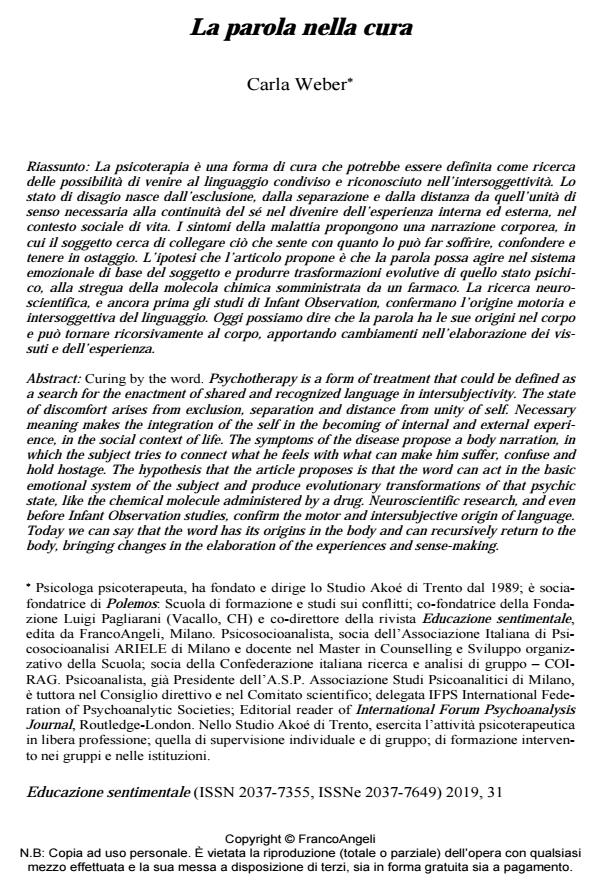La parola nella cura
Journal title EDUCAZIONE SENTIMENTALE
Author/s Carla Weber
Publishing Year 2019 Issue 2019/31
Language Italian Pages 7 P. 9-15 File size 171 KB
DOI 10.3280/EDS2019-031002
DOI is like a bar code for intellectual property: to have more infomation
click here
Below, you can see the article first page
If you want to buy this article in PDF format, you can do it, following the instructions to buy download credits

FrancoAngeli is member of Publishers International Linking Association, Inc (PILA), a not-for-profit association which run the CrossRef service enabling links to and from online scholarly content.
Curing by the word. Psychotherapy is a form of treatment that could be defined as a search for the enactment of shared and recognized language in intersubjectivity. The state of discom-fort arises from exclusion, separation and distance from unity of self. Necessary meaning makes the integration of the self in the becoming of internal and external experience, in the social context of life. The symptoms of the disease propose a body narration, in which the subject tries to connect what he feels with what can make him suffer, confuse and hold hos-tage. The hypothesis that the article proposes is that the word can act in the basic emotional system of the subject and produce evolutionary transformations of that psychic state, like the chemical molecule administered by a drug. Neuroscientific research, and even before Infant Observation studies, confirm the motor and intersubjective origin of language. Today we can say that the word has its origins in the body and can recursively return to the body, bringing changes in the elaboration of the experiences and sense-making.
Keywords: Word, change, experience, intersubjectivity, affective attunement, psychotherapy
Carla Weber, La parola nella cura in "EDUCAZIONE SENTIMENTALE" 31/2019, pp 9-15, DOI: 10.3280/EDS2019-031002